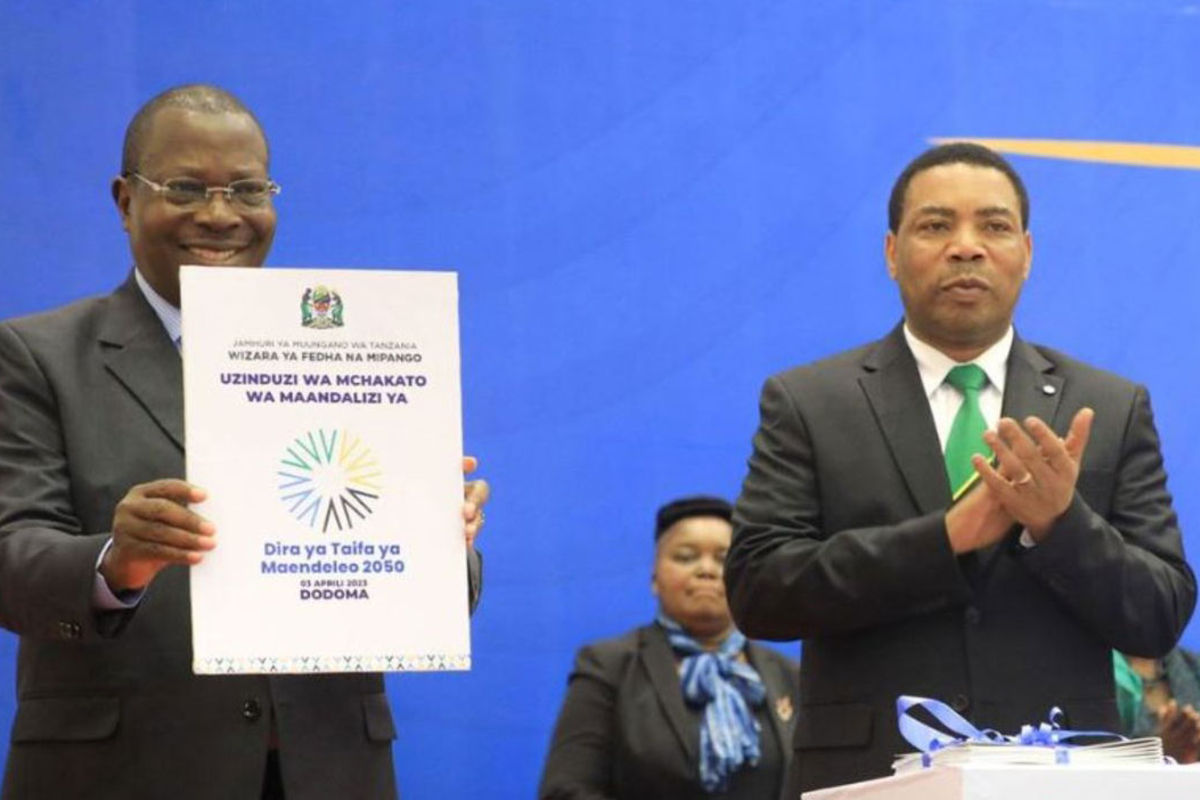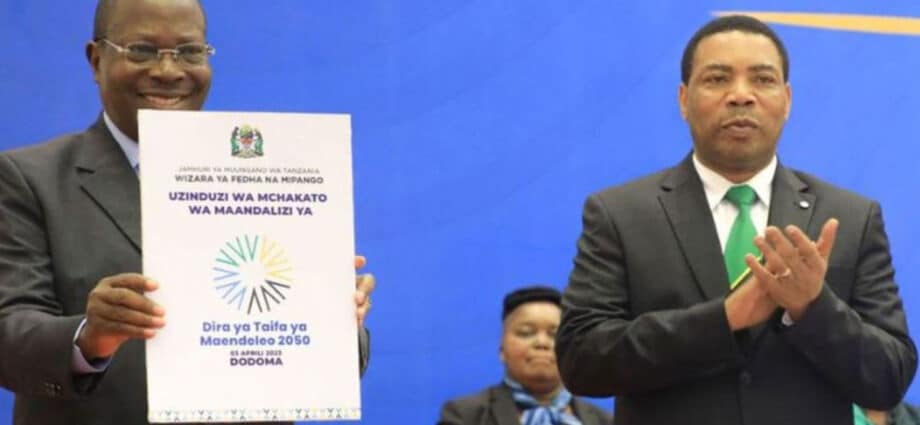
On Thursday, January 2, 2025, at 8pm, we will kick off the year with a critical discussion on the newly released Vision 2050 draft.
Hosted by the Wanazuoni Club on Twitter Spaces, the conversation will feature key figures including Prof Kitila Mkumbo, Zitto Kabwe, Dr Vicensia Shule, and Aida Kiangi.
I will be one of the moderators, and I would like to set the stage for the upcoming discussion by focusing on one key issue: How visionary is Vision 2050?
Tanzania’s Vision 2050 seeks to transform the country into a “prosperous, just, inclusive, and self-reliant” society.
It prioritises economic growth through innovation and industrialisation, with a focus on equitable access to opportunities.
By 2050, Tanzania aims to become an upper-middle-income nation, known for its resilience, sustainability, and global competitiveness.
The document contains several interesting ideas, which we will explore in time. For now, I want to focus on the basics, starting with how we frame our national vision.
As a management trainer, a job that I greatly enjoy doing, I’ve learned the importance of clarity in achieving results.
When definitions and concepts are unclear, developing effective systems becomes challenging.
A vision, as the word suggests, is a mental picture of what you aspire to become.
It describes your future state, where you’re headed, and what success will look like. A vision often outlines a future several years or even decades ahead.
It serves as a “geographic north”, offering long-term direction and infusing an entity with a sense of purpose.
When crafting a vision statement, it’s crucial to include a BHAG—Big Hairy Audacious Goal.
I first came across this concept 15 years ago in Jim Collins and Jerry Porras’ 1994 book, Built to Last: Successful Habits of Visionary Companies.
They define a BHAG as a long-term goal, spanning 10 to 25 years, rooted in a company’s core values and purpose.
A BHAG is bold and ambitious, designed to inspire and drive people toward extraordinary achievements.
With this understanding, how does Tanzania’s Vision 2050 measure up?
Tanzania’s vision outlines four pillars: “prosperous, just, inclusive, and self-reliant”.
These are undeniably aspirational, capturing the hopes of many Tanzanians.
A “prosperous” Tanzania aims for economic growth that elevates living standards.
A “just” society promises fairness and equity. “Inclusiveness” ensures everyone can thrive and contribute, while “self-reliance” focuses on sustainable growth and reducing dependency.
However, the question remains: Is this vision visionary enough to drive transformation?
Unfortunately, the proposed vision lacks the audacity and precision required for genuine transformation.
It offers lofty aspirations but lacks the sharp edge of a BHAG—that magnetic pull towards extraordinary achievements.
Terms like “prosperous” and “inclusive”, while appealing, are generic and lack the distinctiveness that could set Tanzania apart globally.
This vision statement is a little more than a well-intentioned declaration, unanchored to any known cultural, historical, or geographical elements in Tanzania.
It could apply to any country, at any time in history, without offering a unique direction for the future.
Beyond its vagueness, the vision fails to inspire any emotional connection needed to galvanise a nation.
The language is flat—imagine using bureaucratic terms like “self-reliant” in a vision statement. It paints no vivid picture of the future and lacks an electrifying narrative to stir hearts and ignite ambition.
A vision that aims to unite must do more than outline aspirations – it must spark a fire. Unfortunately, this vision statement falls short of that essential goal.
This is a missed opportunity—particularly given Tanzania’s rich history of visionary leadership.
Think of Julius Nyerere’s iconic speech in 1959, where he painted a vivid picture of the nation to come.
‘We will light a candle on Mount Kilimanjaro which will shine beyond our borders, giving hope where there is despair, love where there is hate, and dignity where before there was only humiliation.’
This vision captivated Tanzanians, inspiring them to embody these values and radiate them across Africa and beyond.
For a generation, Nyerere’s words were more than rhetoric—they were a call to action, sparking a profound sense of purpose and national pride. Many of us have not yet recovered from that Messiah complex.
Compare that to the current statement, which feels lacklustre in comparison. It lacks the grandeur and urgency that could galvanise a nation to reach for something transformative.
Some may argue that this is simply a matter of rhetoric, but I disagree.
The process of crafting a vision, mission, and set of objectives is far from routine—it is the very foundation of any strategic plan.
These elements define the long-term direction and set the tone for everything that follows.
While there are certainly interesting aspects of the Vision 2050 document that merit discussion and closer examination, the vision statement falls short of capturing the full sense of purpose and excitement needed for real change.
For now, let me get set for the upcoming discussion. We have an array of remarkably insightful panellists.
Their perspectives will undoubtedly refine my views and contribute to a more nuanced understanding of Vision 2050. It is a perfect way to start the year 2025.
Happy New Year!













